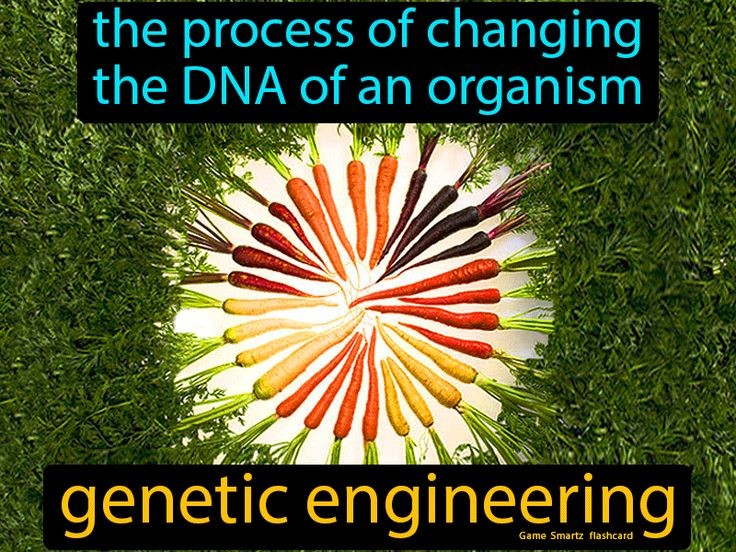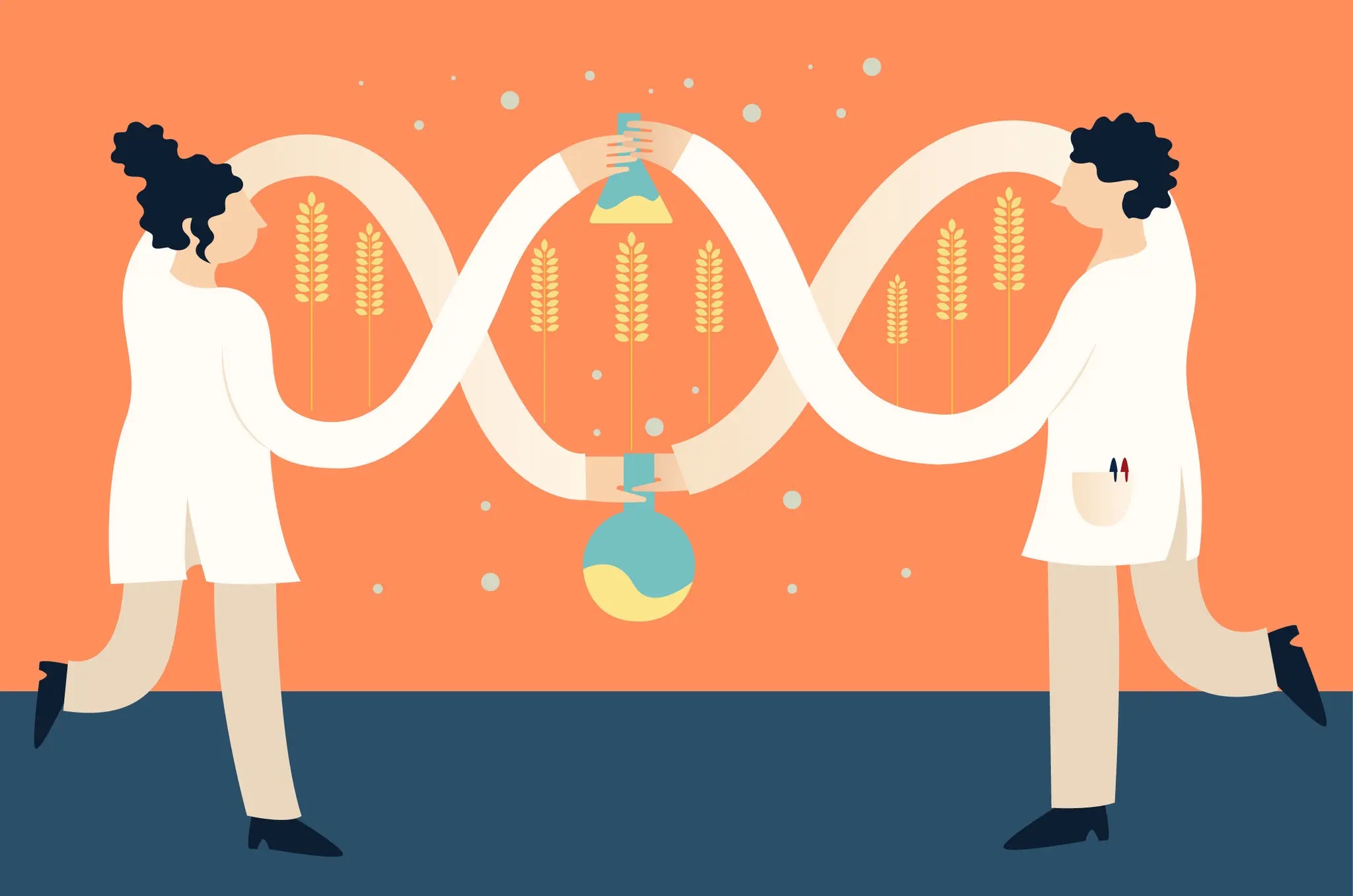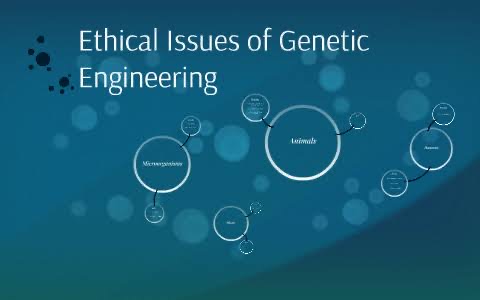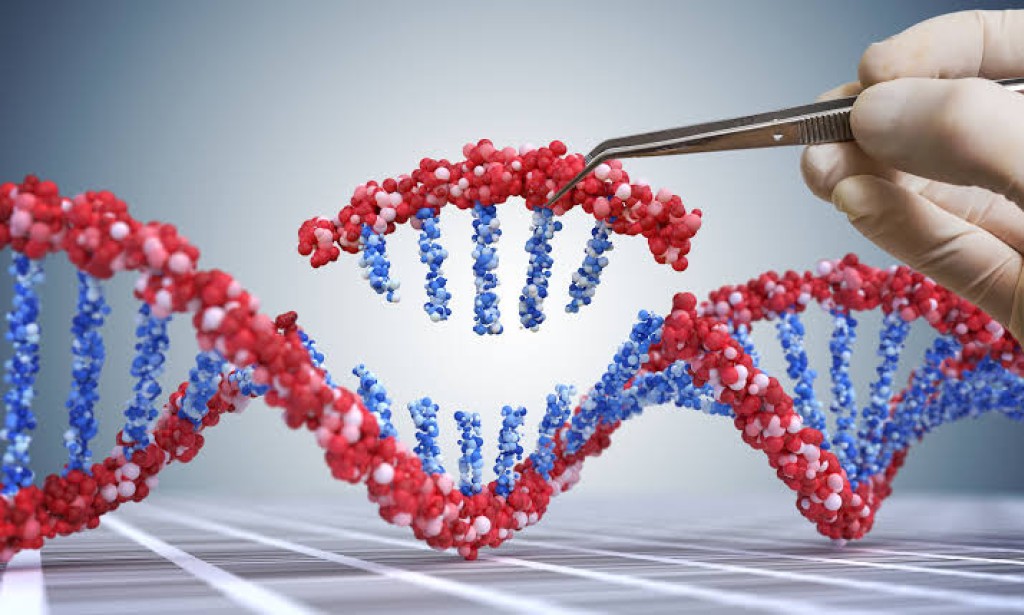The ethics of genetic engineering: exploring the potential benefits and risks of manipulating DNA.

Genetic engineering is the process of manipulating an organism's DNA to introduce specific desired traits or remove unwanted ones. This technology has opened up endless possibilities in various fields, including medicine, agriculture, and environmental conservation. However, genetic engineering also raises significant ethical concerns that must be carefully considered. In this article, we will explore the potential benefits and risks of manipulating DNA and the ethical implications of this technology.
I. What is Genetic Engineering?
Genetic engineering involves the manipulation of the DNA within an organism's cells. This process allows scientists to modify specific genes or add new ones to introduce desired traits or remove unwanted ones. This technology has various applications in medicine, agriculture, and environmental conservation.
II. Potential Benefits of Genetic Engineering
Medical Advancements
Genetic engineering has the potential to revolutionize medicine. By manipulating DNA, scientists can cure genetic diseases such as cystic fibrosis, sickle cell anemia, and Huntington's disease. They can also develop new treatments for diseases such as cancer and HIV/AIDS. Additionally, genetic engineering can help create personalized medicine tailored to an individual's genetic makeup.

Agricultural Advancements
Genetic engineering can help address food scarcity issues by producing crops that are resistant to pests, diseases, and harsh weather conditions. This technology can also improve crop yields and reduce the use of harmful pesticides and herbicides. Additionally, genetically modified animals can produce more meat, milk, and eggs, which can help address food shortages in developing countries.
Environmental Conservation
Genetic engineering can help address environmental issues such as climate change, pollution, and deforestation. For example, scientists can create plants that absorb more carbon dioxide from the atmosphere, reducing the amount of greenhouse gases that contribute to climate change. They can also develop organisms that can break down harmful pollutants and reduce the amount of waste in landfills.
III. Potential Risks of Genetic Engineering

Unknown Long-term Effects
Genetic engineering is a relatively new technology, and the long-term effects of manipulating DNA are unknown. There is a risk that genetically modified organisms could have unintended consequences that could harm the environment or human health.
Ethical Concerns
Genetic engineering raises significant ethical concerns, particularly regarding human genetic modification. Some worry that this technology could lead to the creation of "designer babies," where parents could select specific traits for their children. This could result in a society where only the wealthy can afford to have genetically modified children, leading to increased inequality.
Environmental Risks
Genetically modified organisms could have negative effects on the environment. For example, genetically modified crops could crossbreed with wild plants, creating new hybrids that could become invasive and harm natural ecosystems. Additionally, genetically modified animals could outcompete wild animals, leading to a loss of biodiversity.
IV. Ethical Implications of Genetic Engineering

Autonomy and Consent
One of the most significant ethical concerns surrounding genetic engineering is the issue of autonomy and consent. Should parents have the right to modify their children's genes without their consent? Should individuals be allowed to modify their genes for non-medical reasons, such as cosmetic enhancements? These are complex issues that must be carefully considered.
Equality and Justice
Genetic engineering could exacerbate existing inequalities, particularly if only the wealthy can afford to access this technology. It is essential to ensure that genetic engineering is accessible to all and does not contribute to social injustices.
Environmental Stewardship
As with any technology, genetic engineering must be used responsibly to minimize its impact on the environment. Scientists must consider the potential ecological risks of genetically modified organisms and work to mitigate them.
Genetic engineering is a technology that allows scientists to modify the genetic makeup of organisms, including humans, plants, and animals. This technology has the potential to revolutionize medicine, agriculture, and industry, but it also raises ethical concerns. Here are some of the key ethical implications of genetic engineering:
Safety: Genetic engineering has the potential to create new organisms that could be harmful to humans and the environment. For example, genetically modified (GM) crops could lead to the creation of superweeds that are resistant to herbicides. Additionally, the creation of genetically modified humans could have unpredictable effects on their health and well-being.
Equity: Genetic engineering could exacerbate existing inequalities by creating new forms of privilege and disadvantage. For example, wealthy individuals could use genetic engineering to enhance their intelligence or physical abilities, while those without access to this technology would be left behind.
Autonomy: Genetic engineering raises questions about individual autonomy and the right to make decisions about one's own genetic makeup. Some people argue that individuals should have the right to make decisions about their own bodies, including whether or not to undergo genetic engineering. Others argue that genetic engineering could have unintended consequences that could harm society as a whole, and therefore, decisions about genetic engineering should be made collectively.
Discrimination: Genetic engineering could lead to discrimination against individuals who do not possess certain desirable traits. For example, employers or insurance companies could discriminate against individuals who do not have certain genetic traits, such as a predisposition to certain diseases.
Informed Consent: Genetic engineering raises questions about informed consent. Individuals who undergo genetic engineering may not fully understand the risks and benefits of the procedure, or they may be coerced into undergoing the procedure against their will.
Animal Welfare: Genetic engineering could be used to create animals that are better adapted to human use, but it could also be used to create animals that suffer. For example, scientists could genetically engineer animals to produce more milk or meat, but this could lead to health problems for the animals.
Environmental Impact: Genetic engineering could have a significant impact on the environment. For example, genetically modified organisms could be released into the wild and cause unintended consequences, such as the extinction of other species.
Conclusion
Genetic engineering has the potential to revolutionize various fields, from medicine to agriculture to environmental conservation. However, this technology also raises significant ethical concerns that must be carefully considered. Genetic engineering is a powerful technology that has the potential to bring many benefits to society, but it also raises ethical concerns that need to be carefully considered. As genetic engineering becomes more widespread, it will be important to continue to have discussions about the ethical implications of this technology and to ensure that it is used in a way that is safe, equitable,and respects individual autonomy.


You must be logged in to post a comment.